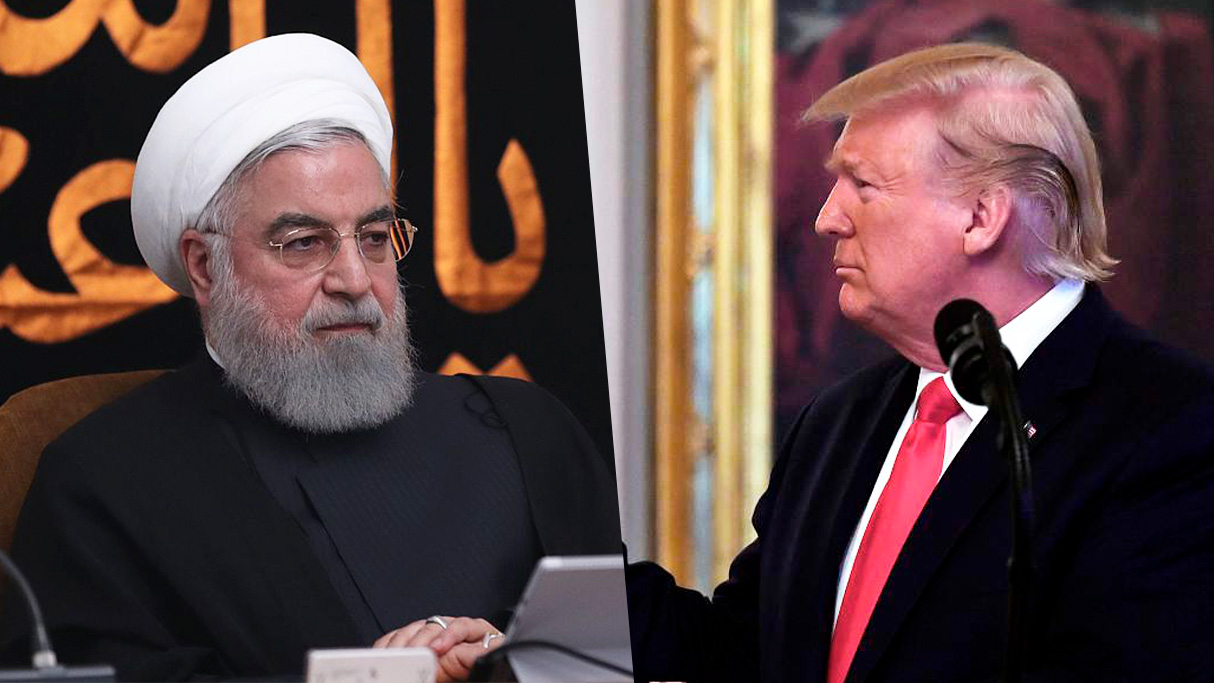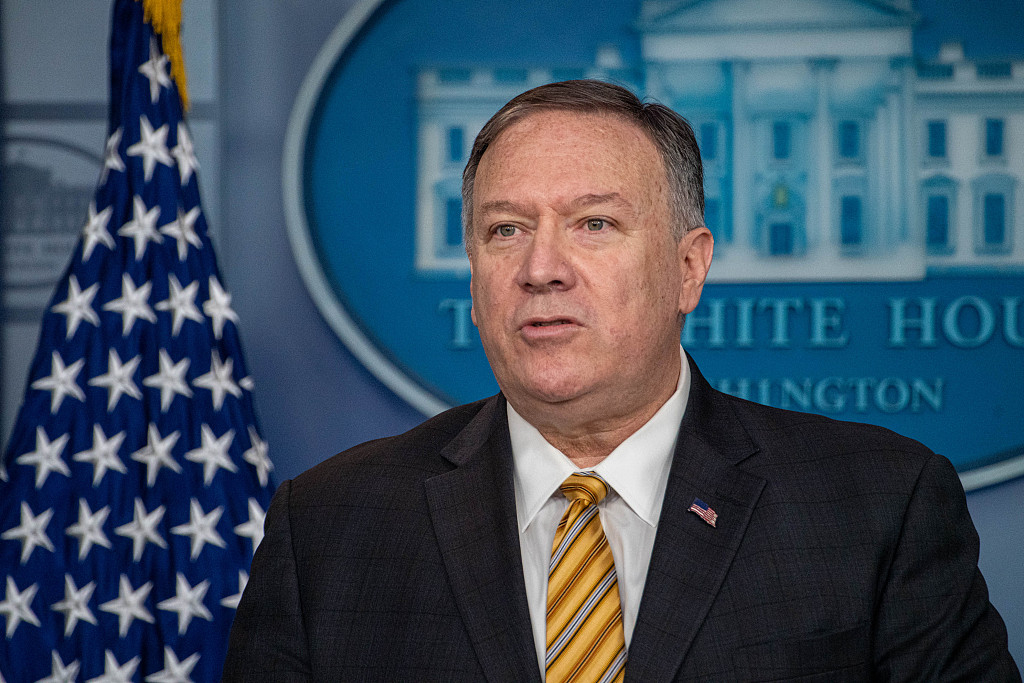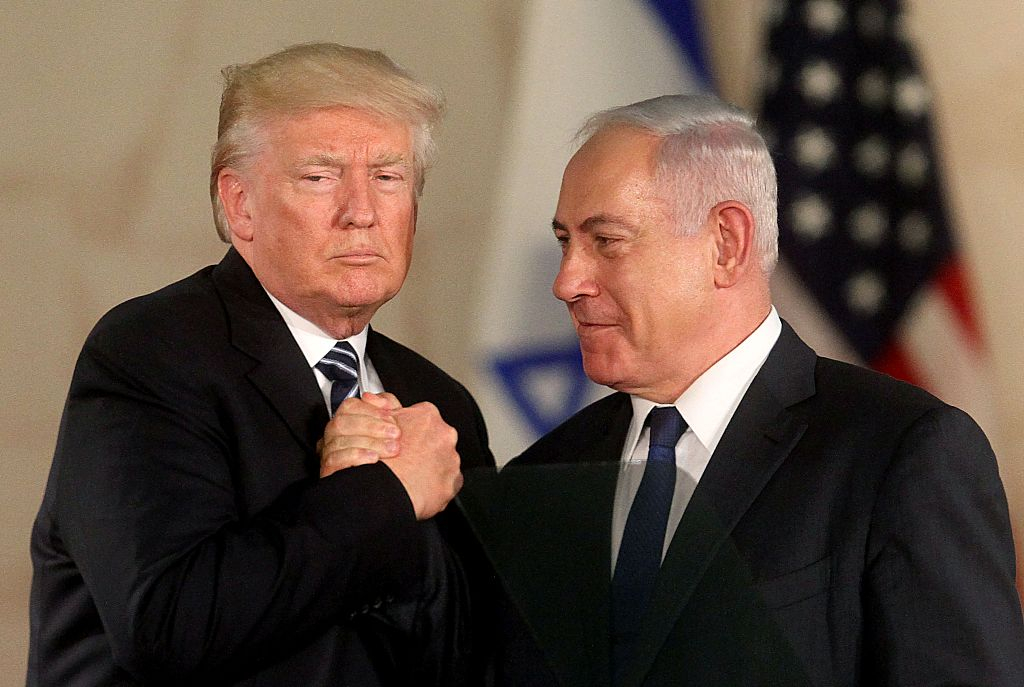
Editor's Note: Huang Jiyuan is an opinion editor with CGTN Digital. This article is based on his interview with Wu Sike, Former Special Envoy of the Chinese Government on the Middle East Issue, former Chinese Ambassador to Egypt, and former Chinese Ambassador to Saudi Arabia. The interview took place at the Taihe Civilizations Forum, held in Beijing between September 6 and 8. This forum is an annual gathering of more than one hundred experts and government officials to discuss challenges of the time. The opinions expressed in this article are not necessarily the views of CGTN.
Two oil refineries in Saudi Arabia were attacked by drones over the weekend. Houthi movement, an armed organization operating out of Yemen, claimed responsibility for the attack. Despite this, U.S. Secretary of State Mike Pompeo tweeted that "Iran has now launched an unprecedented attack on the world's energy supply". Before his tweet, the White House said that President Donald Trump has offered Saudi Crown Prince Mohammad Bin Salman "his support for Saudi Arabia's self-defense."
As the situation escalates, many have cast doubt on the Trump administration's knee-jerk reaction to link the attack to Iran. U.S. Senator Chris Murphy, member of the Senate Foreign Relations Committee, believes Secretary Pompeo's tweet is an "irresponsible simplification" and one cannot simply equate the Houthis to Iran. Besides, Saudi's foreign ministry has been conducting its own investigation into the attack, and did not just issue a blanket condemnation on Iran. So where is the Trump administration's bias against Iran coming from?

U.S. Secretary of State Mike Pompeo was quick to claim that Iran was behind the drone attack. /VCG Photo
According to Wu Sike, Former Special Envoy of the Chinese Government on the Middle East Issue, the U.S. administration's Iran policy has strong domestic political incentives. "Trump's extreme pressure tactic", Wu claims, "first, gains him the support of the Jewish population in the U.S. – one of his core constituents. In addition, he coaxes Saudi Arabia and other countries in the region into purchasing U.S. military equipment, thereby benefiting the military-industrial complex – another Trump core constituent."
Indeed, since Trump came into power, his administration has tried to pander to the Jewish people and the military-industrial complex. Most notably, the Trump administration moved the U.S. embassy in Israel to Jerusalem and has expanded the U.S. defense budget year-on-year.
However, does this sort of unilateral behavior really benefit the U.S.?
"People cannot do business when there is no trust", Wu says, "countries are the same. Trump's current actions appear to be bringing him short-term benefits, but they are costing America's credibility on the world stage as a country."

Trump's actions might be buying him friends for now. But, will it last? Trump pictured with Israeli Prime Minister Benjamin Netanyahu. /VCG Photo
Even though Trump's actions are costing the U.S., Wu believes that the world is actually "benefiting" from the Trump administration's actions because they are helping the world to see the U.S. more clearly.
"He is actually teaching the world a lesson about America. People used to be drawn to the U.S. by its much-touted human rights, universal values, and morals. Now, Trump has discarded all these appearances. He judges everything based on his interests and benefits. 'As long as I can benefit from it, everything else can be sacrificed'. This is his thinking. And because of this, people around the world are starting to realize that the U.S. doesn't hold the moral high ground they've always thought it does", Wu explains.
Wu believes this also signals something greater. "At this juncture where we are experiencing 'major changes unfolding in our world, something unseen in a century', America's values wouldn't be able to sustain the system. There must be a new value and idea to reinvigorate the international order. We should be thanking Mr. Trump for this. Because of him, the Iranians, we the Chinese, and people around the world are seeing ourselves and the world more clearly."
Wu sees Trump as a "test" for the world. Despite his pressure, we must be able to withstand it. The behavior of using diplomatic actions to satisfy his domestic base cannot sustain international order. Trump is showing the world this truth, and people must be ready for the future it leaves behind.
*This article was first published on CGTN: Why is the Trump administration biased against Iran?
-

- Expert: China-U.S. ties are too big to fail 13 September , 2019
-

- The bad and the good in today's China-U.S. educational... 16 September , 2019
-

- Why is the Trump administration biased against Iran? 16 September , 2019
-

- 2019 Taihe Civilizations Forum Content Highlights 15 January , 2020
-
2019 Content Highlights
-

- Rashid Alimov Distinguished Fellow of Taihe Institute.
-

- H.E.Vladimir Norov Secretary General of Shanghai Cooperation Organization.

